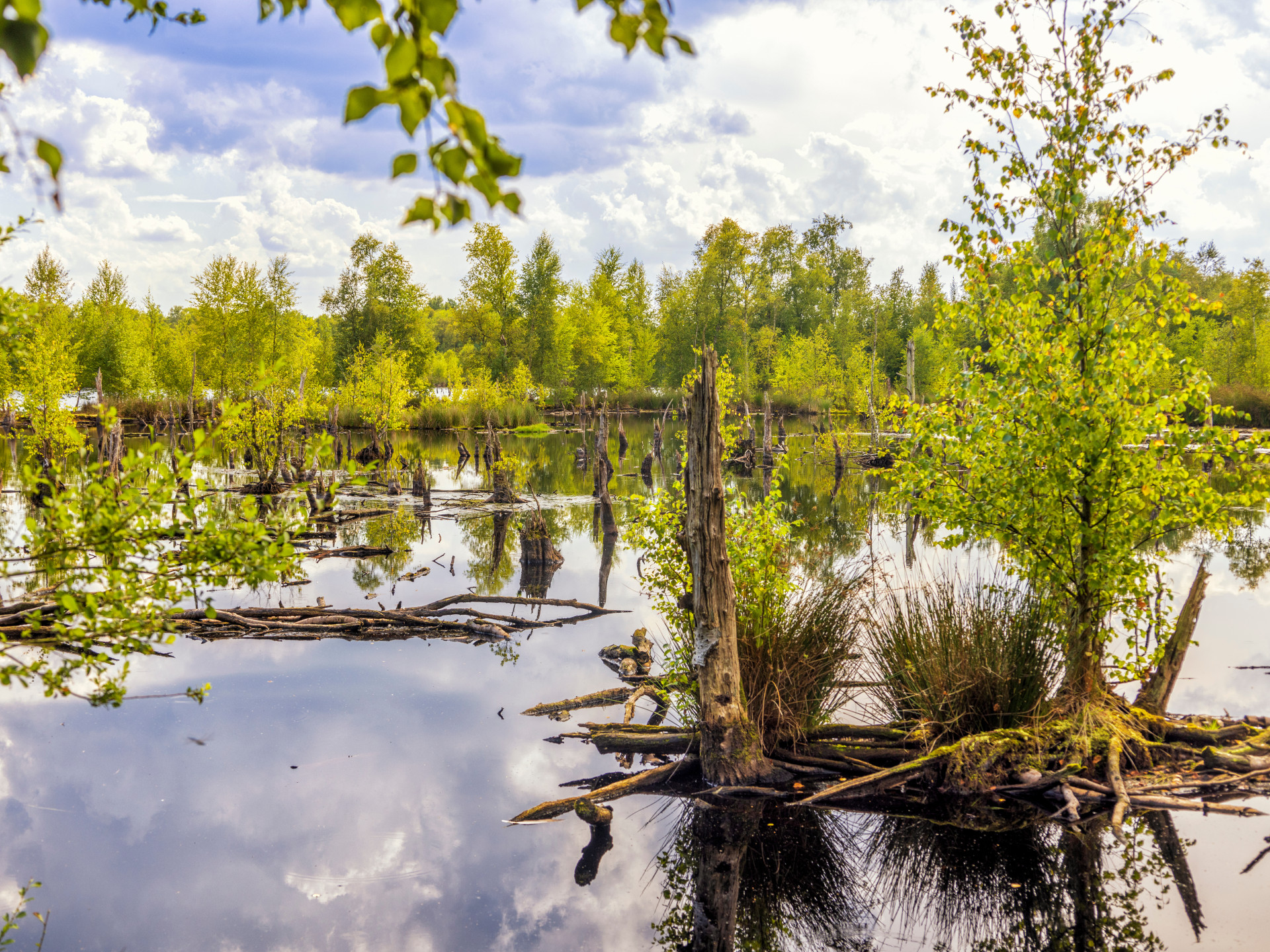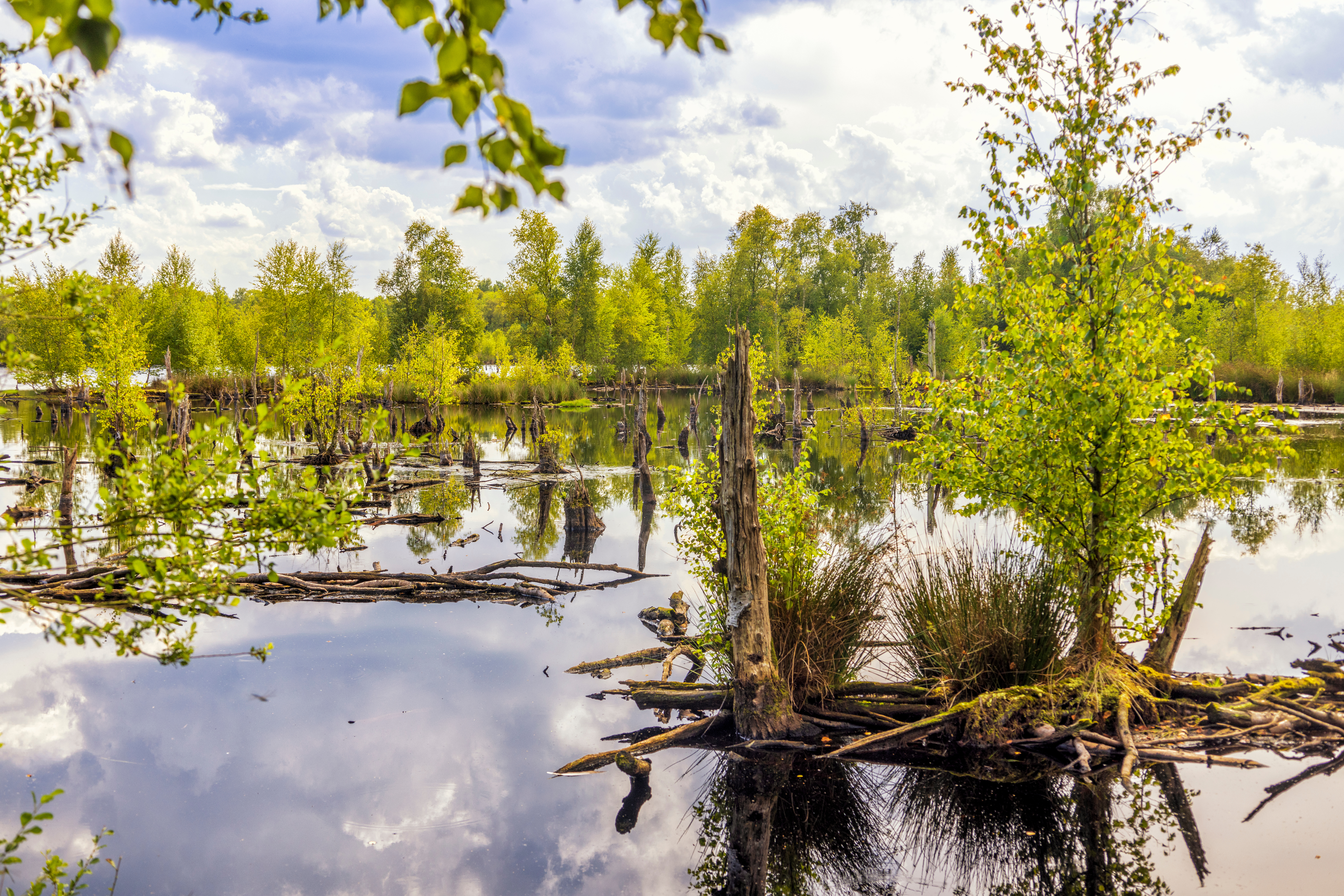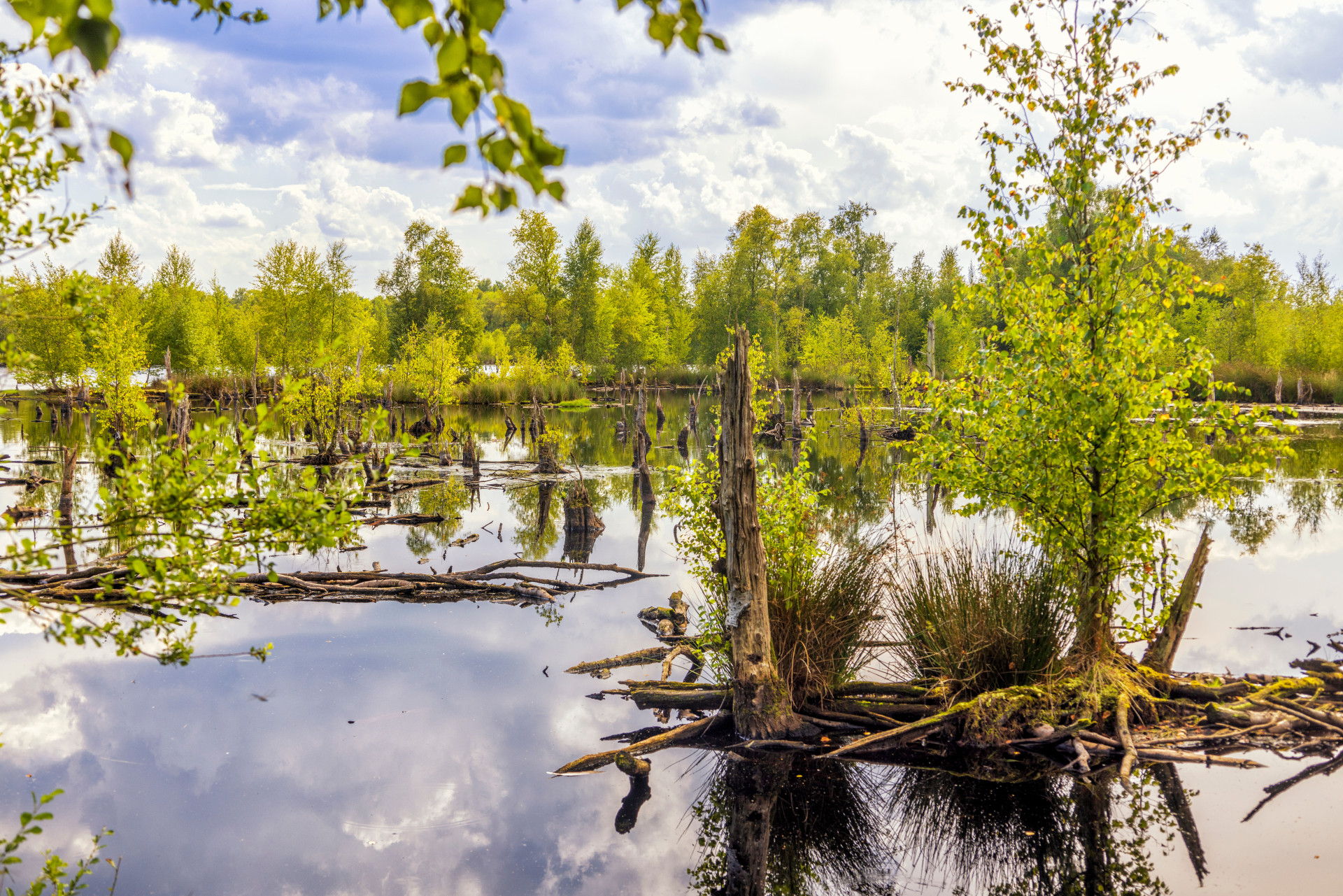Rewetting of peatlands


Participating centers: GFZ, UFZ
Contact: Torsten Sachs, Sabine Attinger
About 95 percent of the organic soil area in Germany, mainly peatlands, is drained for agricultural purposes. This process leads to the emission of approximately 53 million tons of CO₂-equivalents per year, which makes up almost seven percent of the total German emissions.
During the first phase of the Helmholtz Climate Initiative, the climate protection potential through peatland rewetting in Germany was estimated according to CO2 avoidance and CO2 removal potential. The estimation was based on the assumption that all sites are actually rewettable. More on Phase I.
According to the National Peatland Protection Strategy, insufficient water availability as a result of climate change could be an obstacle to successful peatland rewetting. During the second phase of the Climate Initiative the focus will be on assessment of current and future water availability in German peatlands. In addition, a pilot project on peatland rewetting will be developed in Potsdam in cooperation with local and regional stakeholders.
